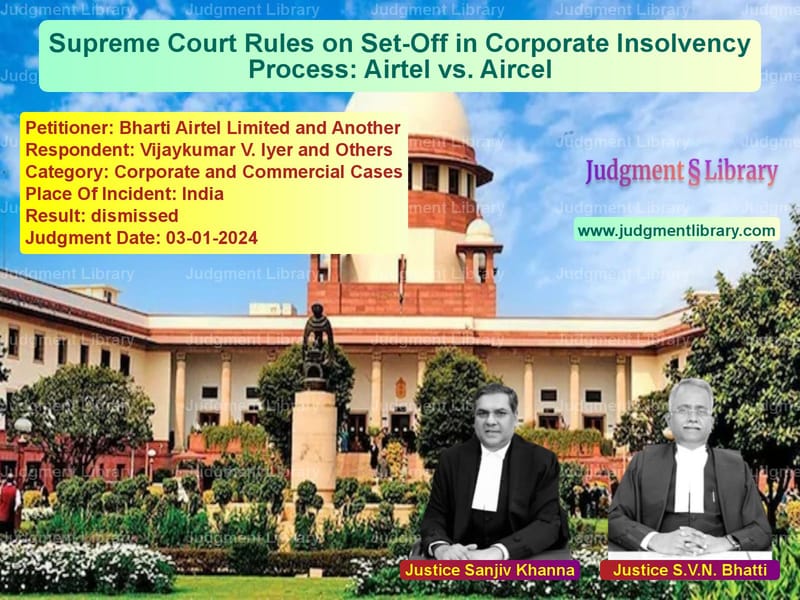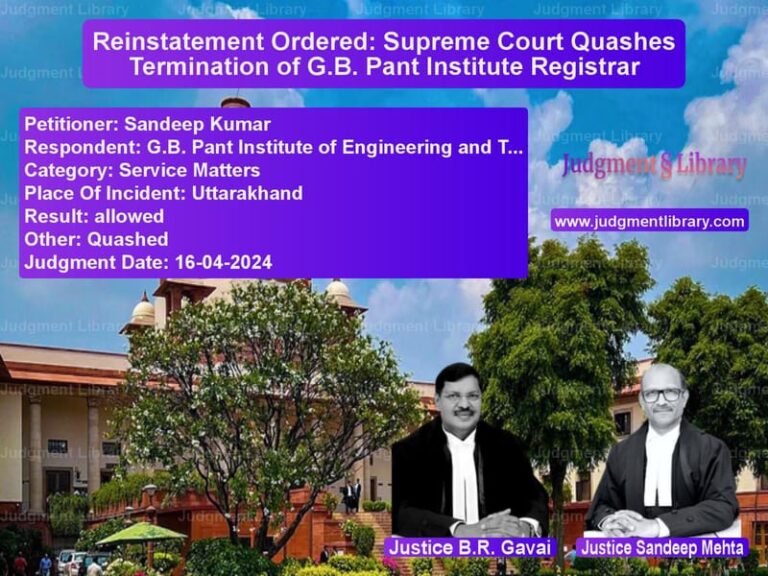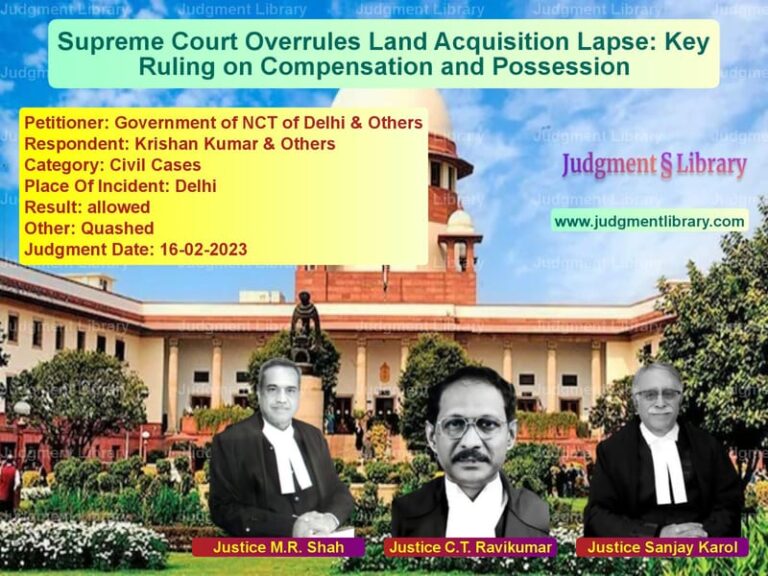Supreme Court Rules on Set-Off in Corporate Insolvency Process: Airtel vs. Aircel
The Supreme Court of India has recently ruled on a significant case concerning the right to claim set-off during the Corporate Insolvency Resolution Process (CIRP). The case involved telecom giants Bharti Airtel Limited and Bharti Hexacom Limited (Airtel entities) against the resolution professional of Aircel Limited and Dishnet Wireless Limited (Aircel entities). The dispute revolved around whether Airtel could adjust dues it owed to Aircel against outstanding claims it had on Aircel under various contracts.
Background of the Case
In 2016, Airtel entered into eight spectrum trading agreements with Aircel to acquire spectrum in the 2300 MHz band. However, the Department of Telecommunications (DoT) demanded bank guarantees from Aircel before approving the spectrum transfer. Due to financial difficulties, Aircel requested Airtel to furnish bank guarantees on its behalf. Airtel complied and deducted Rs. 586.37 crores from the payment due to Aircel under the spectrum transfer agreements.
Subsequently, the Telecom Disputes Settlement and Appellate Tribunal (TDSAT) ruled that the DoT’s demand for Rs. 298 crores was untenable and ordered the return of the bank guarantees. However, DoT did not comply, prompting further litigation, culminating in a Supreme Court order directing the cancellation of the bank guarantees.
Following the cancellation, Airtel paid Rs. 341.80 crores to Aircel but adjusted Rs. 145.20 crores as set-off against operational charges, SMS charges, and interconnect usage charges owed by Aircel.
Initiation of Insolvency Proceedings
Meanwhile, the CIRP was initiated against Aircel. The National Company Law Tribunal (NCLT) admitted the insolvency petitions for Aircel Limited and Dishnet Wireless Limited in March 2018. Airtel filed claims for Rs. 203.46 crores but also owed Rs. 64.11 crores to Aircel. The resolution professional admitted Airtel’s claims only to the extent of Rs. 112 crores.
In January 2019, the resolution professional objected to Airtel’s unilateral set-off of Rs. 145.20 crores and demanded payment. Airtel challenged this before the NCLT, which ruled in its favor. However, on appeal, the National Company Law Appellate Tribunal (NCLAT) overturned the decision, holding that set-off was not permissible under insolvency law.
Supreme Court’s Analysis and Judgment
The Supreme Court analyzed various forms of set-off, including statutory, legal, equitable, and insolvency set-off. It emphasized that insolvency set-off differs from other forms as it is governed strictly by the provisions of the Insolvency and Bankruptcy Code (IBC). The Court ruled that:
- Set-off is not automatically available in CIRP, as the IBC does not provide for it explicitly.
- The objective of the CIRP is to maximize asset value and ensure equitable treatment of creditors, which could be undermined by allowing set-off.
- Equitable set-off applies only when claims are closely connected, which was not the case between Airtel and Aircel’s spectrum trading agreement and operational dues.
- Section 53 of the IBC, which governs the distribution of liquidation proceeds, does not recognize set-off during CIRP.
- Permitting set-off would violate the pari passu principle, which ensures equitable distribution among creditors.
The Court concluded that Airtel’s claim for set-off was not maintainable under the IBC and dismissed the appeals.
Key Takeaways from the Judgment
- Restriction on Set-Off: The ruling clarifies that set-off is not automatically allowed in insolvency proceedings unless specifically provided for in the resolution plan or approved by the resolution professional.
- Doctrine of Pari Passu: The Court reaffirmed that all creditors must be treated equitably, and no creditor can gain an undue advantage through set-off.
- Role of Contractual Agreements: While contractual set-offs may be valid before insolvency proceedings, they do not override the IBC framework once CIRP is initiated.
- Clarity on Insolvency Set-Off: The judgment distinguishes between contractual and insolvency set-offs, providing guidance for future insolvency cases.
Conclusion
This Supreme Court ruling is a landmark judgment in India’s insolvency law. It reinforces the principle that the insolvency resolution process must be conducted fairly and transparently, without allowing creditors to unilaterally adjust claims. The judgment will have significant implications for future CIRP cases, particularly in ensuring that creditors adhere to the structured process laid out under the IBC.
Petitioner Name: Bharti Airtel Limited and Another.Respondent Name: Vijaykumar V. Iyer and Others.Judgment By: Justice Sanjiv Khanna, Justice S.V.N. Bhatti.Place Of Incident: India.Judgment Date: 03-01-2024.
Don’t miss out on the full details! Download the complete judgment in PDF format below and gain valuable insights instantly!
Download Judgment: bharti-airtel-limite-vs-vijaykumar-v.-iyer-a-supreme-court-of-india-judgment-dated-03-01-2024.pdf
Directly Download Judgment: Directly download this Judgment
See all petitions in Bankruptcy and Insolvency
See all petitions in Corporate Compliance
See all petitions in unfair trade practices
See all petitions in Judgment by Sanjiv Khanna
See all petitions in Judgment by S.V.N. Bhatti
See all petitions in dismissed
See all petitions in supreme court of India judgments January 2024
See all petitions in 2024 judgments
See all posts in Corporate and Commercial Cases Category
See all allowed petitions in Corporate and Commercial Cases Category
See all Dismissed petitions in Corporate and Commercial Cases Category
See all partially allowed petitions in Corporate and Commercial Cases Category







